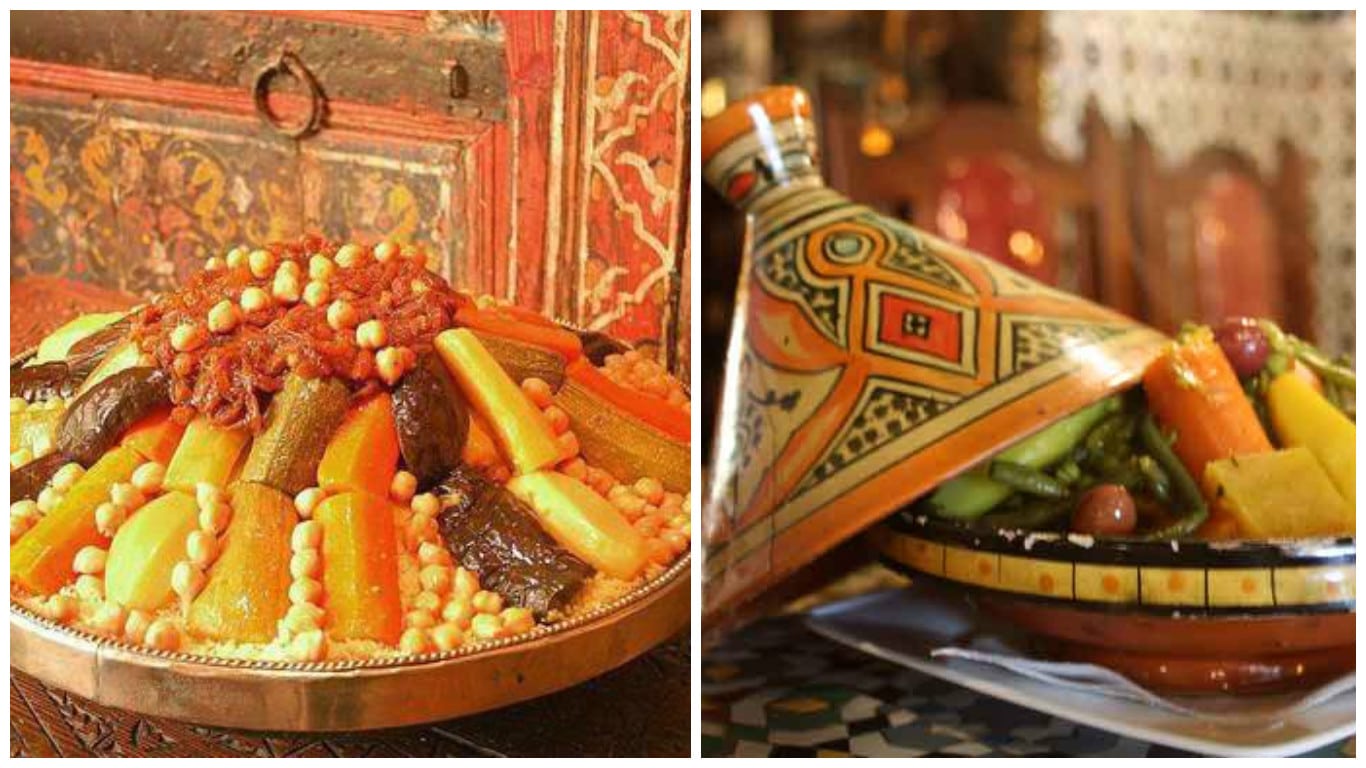The Amazigh culture proudly holds a culinary heritage that has stood the test of time, remaining remarkably unchanged for centuries. Rooted in the diverse landscapes of North Africa and shaped by the cultural practices of the Berber people, their traditional cuisine is a testament to the resilience and richness of this ancient culture.
Simplicity and Freshness:
Characterized by simplicity, the Amazigh cuisine places a strong emphasis on using fresh ingredients and adhering to traditional cooking methods. Grains, legumes, vegetables, and aromatic spices form the foundation of their dishes, creating a culinary experience that is both authentic and flavorful.
Iconic Dish: Couscous:
At the heart of Berber cuisine lies couscous, an iconic dish made from semolina wheat. Often steamed over a delightful stew of vegetables, meat, and aromatic spices, couscous is more than just a meal—it’s a communal experience that brings families and communities together.
Notable Stew: Tagine:
Another star in Berber cuisine is the tagine, a slow-cooked stew named after the earthenware pot it’s cooked in. Comprising meat (typically lamb or chicken), vegetables, and a blend of spices, tagine is renowned for its rich flavors and tender, aromatic meat.
Bread and Snacks:
Berber or Amazigh cuisine extends to a variety of flatbreads like msemen and harcha, perfect for accompanying meals or serving as a base for sandwiches. Traditional snacks, including dates, almonds, and various preserved fruits, showcase the diversity and resourcefulness of Berber culinary traditions.
Connection to Nature:
The Amazigh people’s intimate connection to nature is evident in their cuisine. Foraged herbs, wild greens, and locally sourced ingredients add depth to their dishes. Fresh mint tea, known as “nana,” not only reflects this connection but also serves as a popular gesture of hospitality in Berber culture.
Preserving Heritage:
The preservation of these traditional culinary practices is more than a culinary choice—it’s a commitment to the deep-rooted connection between the Berber people, their land, and their cultural heritage. Berber cuisine is a living expression of their identity.
Continuing Traditions:
In the modern era, Berber cuisine continues to be cherished and shared within local communities and beyond. Visitors are welcomed to savor the flavors of this ancient culinary tradition, providing a taste of the enduring heritage that has shaped Berber culture for generations.

